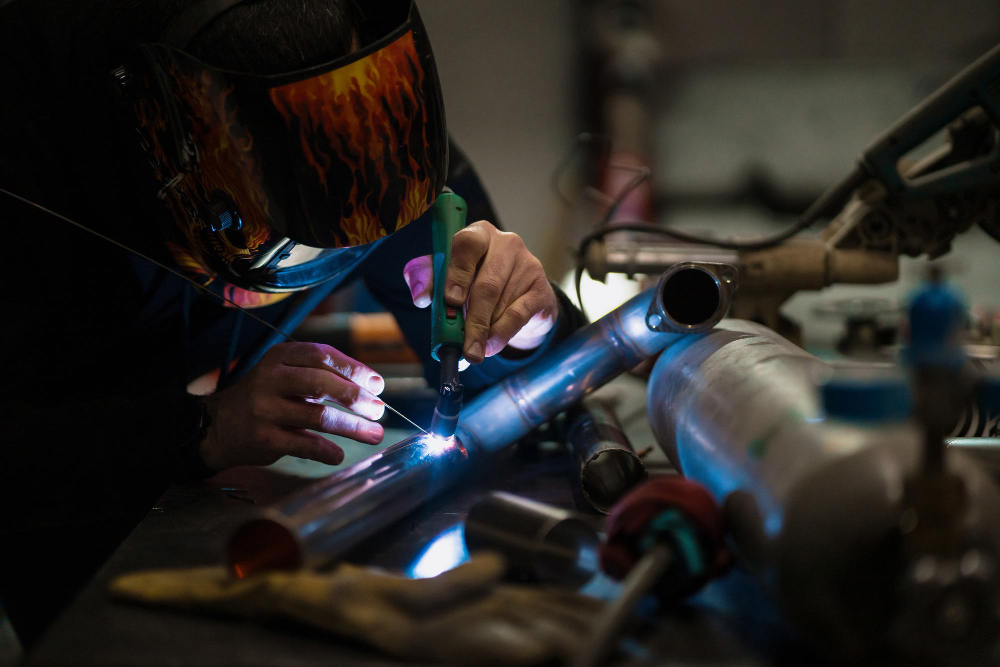Reasons to Hire a Professional Welder for Equipment Repair
If you are in need of welding repair services, you should find a company that uses the most recent equipment and techniques. These companies typically provide better service and efficiency. Their equipment should also be calibrated to ensure precision and accuracy in all their work. You should also find out what the costs will be to hire a professional welder.
Hardfacing is a form of welding that extends the lifespan of a tool
Hardfacing is a type of welding that encases worn parts with a specialized alloy and forms a strong mechanical bond with the base metal. This process is used in a variety of industries to rebuild worn parts to OEM specifications, reduce production costs, and reduce machine downtime. The process also improves a tool's durability and resistance to corrosion and heat.
Hardfacing is performed in two ways. The first method involves the application of an abrasive coating to the surface of a tool. In order to maximize its effectiveness, weld beads must be spaced between 6.4 and 38 mm apart. These beads should be placed perpendicular to the direction of the abrasive flow to protect the base metal.
The most effective way to remove old hardfacing is by using an ARCAIR system. ARCAIR is an acronym for Air-Carbon-Arc. During the process, the carbon arc emits heat, which breaks up the old hardfacing.
Labor costs
Labor costs are one of the biggest expenses in an equipment repair project. Usually, they make up 60 to 70 percent of the total project cost, but can increase to 85 percent in some cases. These costs include time spent on preparation of materials, welding, preheating, inspection, and clean-up. A welder will bill for this time on an hourly basis and may charge a travel fee as well. To avoid the need to pay travel costs, move transportable items to the welder's location.
In addition to the hourly rate, welders usually charge an additional material cost, such as steel. While this markup can vary, most welders mark up materials 25 to 30 percent. However, some will mark up steel two to three times. Depending on the business model, welders can charge as much as 100$ for a single sheet of steel.
The cost of welding materials will vary depending on the type of welding material and the time involved. On average, welding projects last anywhere from four to six hours. If the welding job lasts longer than six hours, it is not likely that you'll get any other work done during that time, so you should consider paying the full day's rate. This is usually about $120 to $150 per day.
Qualifications of a professional welder
Welding is a skill that requires precision and the ability to analyze a situation. Good welding skills are essential for repairing flaws in existing metal objects. A good welder must also be physically and mentally fit. In addition, he or she must have good hand-eye coordination. Lastly, a good welder must also have the ability to work well with others.
A welder's apprenticeship can last anywhere from three to four years, depending on the program and the trainee. When the apprenticeship program is completed, the welder becomes a journeyman. At this point, he or she is fully certified and has accumulated the necessary skills. Some welders specialize in certain types of welding, like underwater welding. These welders wear scuba diving suits and make repairs underwater. They are often found in oil drilling and pipeline companies.
Having a license to work as a welder opens up a world of potential clients. In addition to increasing your income, a welder's license also helps you build your professional skills. Moreover, a license to work in the field opens up many doors, including starting an independent welding business. In addition, welding insurance is required.
Choosing a professional welder
Choosing a professional welder for your equipment repair project is an important part of the process. You should consider the type of metal you need to weld, the power requirements, and the output of different machines to choose the right one. Arc welders create an electric arc that melts the metals where they meet. They use either direct or alternating current and use consumable electrodes to melt the metals and create a strong weld.
Before you hire a welder for an equipment repair project, you should determine the type of metal you want to weld and the thickness of each metal. This will help you choose a welder whose experience and training is appropriate for your needs. It is also important to find a reputable company that is insured.
Professional welders use the right tools for the job. Most welding companies invest in state-of-the-art tools for welding. These tools include sheet metal gauges and electrode feeds. You may have to purchase or rent these tools if you choose to do the equipment repair yourself, but a professional welder will have all the necessary tools on hand.

